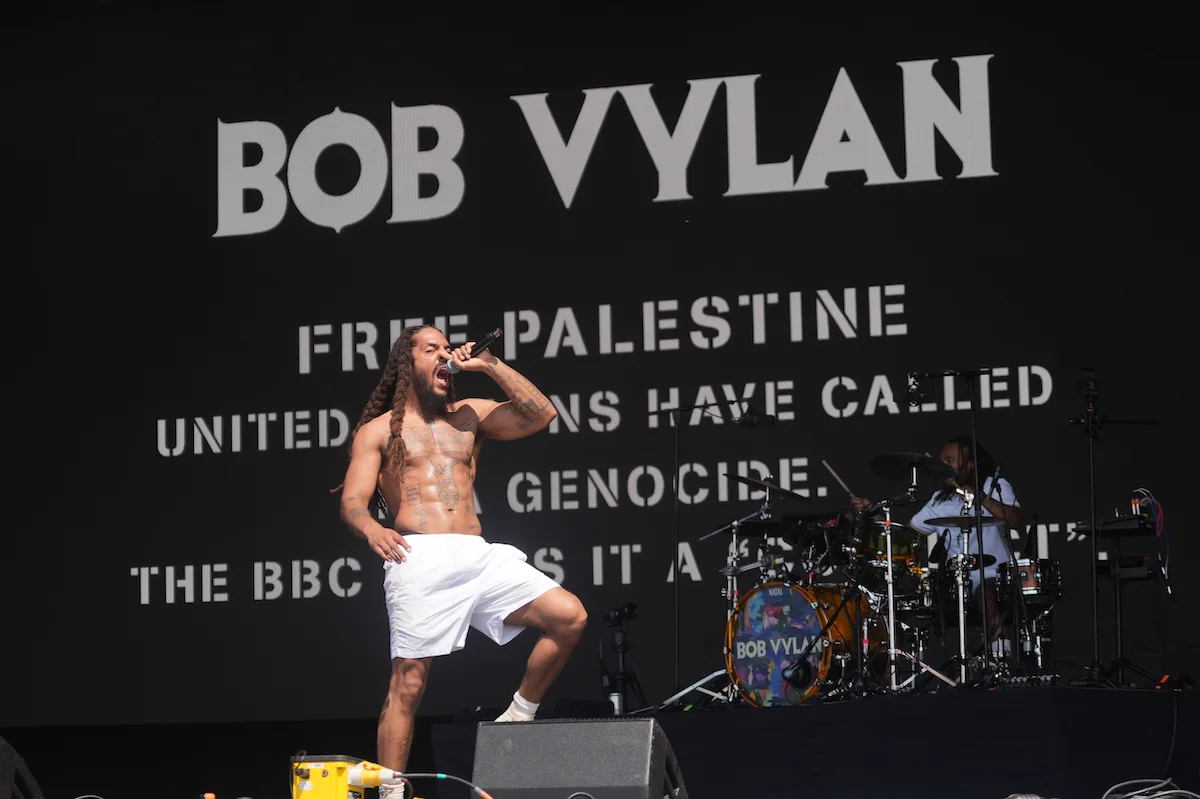The 2025 Glastonbury Festival, known for spotlighting bold performances, took a turbulent turn when punk-rap duo Bob Vylan used the main stage to make a powerful political statement. Amid chants of “Free, free Palestine”, the pair sparked a firestorm by invoking “Death to the IDF”, a controversial moment that swiftly made global headlines.
In the aftermath, major festivals—Radar Festival (UK), Kave Fest (France), and a Cologne event—cut ties with the band. The United States revoked their visa, and their agency, United Talent Agency (UTA), also severed its relationship. The U.S. Deputy Secretary of State labeled their performance a “hate campaign,” deepening the backlash.
On social media, Bob Vylan remained defiant. “Silence is not an option,” they posted. “We’re fine. The people suffering are in Palestine.” Their message condemned what they described as media distractions and government silence in the face of humanitarian crises.
Despite the consequences, they gained support from fellow artists like Massive Attack, Amyl and The Sniffers, and Lambrini Girls, who echoed frustrations about the media focusing more on musicians than on geopolitical atrocities.
The Glastonbury organizers distanced themselves from the performance, condemning hate speech and reiterating their anti-violence policy. Still, the moment reignited debates on freedom of expression in music, especially when confronting global injustice.
Bob Vylan insists they’re not the story, but rather a distraction from the real issue—civilian suffering in Gaza. As artists continue facing consequences for political commentary, 2025 could mark a defining year for activism in music.


